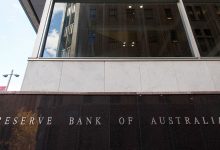One of the world’s largest banking regulators has issued a call to central banks to push governments to introduce strong policies to mitigate global warming, warning that groups like the Reserve Bank of Australia may be left to bail out a fossil fuel industry left with stranded assets.
In a research note published by the Bank for International Settlements, the group warned that central banks, including the Reserve Bank of Australia, will likely be required to become increasingly active in the management of financial risks related to climate change.
The Bank for International Settlements serves as the central forum for cooperation between central banks around the world, and describes itself “as a bank for central banks”.
According to the group’s latest paper, not only do governments and central banks face the risk of footing the bill for failing investments in the fossil fuel sector, the global economy faces a growing risk of an unprecedented global economic crisis triggered by climate change unless action to address the causes of global warming is rapidly accelerated.
The paper warns of ‘green swans’, a play on the ‘black swan’ theory developed by statistician Nassim Nicholas Taleb, that examines the inability to predict or plan for outcomes that are extremely unlikely, but catastrophic in their impact.
The concept has generally been applied to events like major tsunami’s, earthquakes or volcano events, but the analysts at the Bank for International Settlements have suggested that a failure to adequately respond to the threat posed by climate change could have similar catastrophic impacts for the global economy.
The paper cites several characteristics that make climate events distinct from ‘black swan’ events, in particular, that there is a clearly established need to act, and an opportunity to avoid, or limit, the extent of the catastrophe.
“There is certainty about the need for ambitious actions despite prevailing uncertainty regarding the timing and nature of impacts of climate change,” the paper says.
“Second, climate catastrophes are even more serious than most systemic financial crises: they could pose an existential threat to humanity, as increasingly emphasised by climate scientists.”
“Third, the complexity related to climate change is of a higher order than for black swans: the complex chain reactions and cascade effects associated with both physical and transition risks could generate fundamentally unpredictable environmental, geopolitical, social and economic dynamics.
“These include what we call ‘green swan’ risks: potentially extremely financially disruptive events that could be behind the next systemic financial crisis. Central banks have a role to play in avoiding such an outcome, including by seeking to improve their understanding of climate-related risks through the development of forward-looking scenario-based analysis,” the paper adds.
Such events could require central banks to intervene to address inadequate climate change responses, including seeing central banks bailing out stranded fossil fuel assets, such as large coal-fired power stations.
“Green swan events may force central banks to intervene as ‘climate rescuers of last resort’ and buy large sets of devalued assets, to save the financial system once more,” the paper says.
But the research says that governments should not rely on central banks to bail out the fossil fuel industry, saying ideally governments will establish meaningful policies that support a rapid, but planned, transition of the economy including the introduction of a price on carbon emissions.
“Central banks cannot (and should not) simply replace governments and private actors to make up for their insufficient action, despite growing social pressures to do so. Their goodwill could even create some moral hazard,” the paper goes on to say.
“In short, central banks, regulators and supervisors can only do so much (and many of them are already taking action within their mandates), and their action can only be seen as enhancing other climate change mitigation policies.”
The Reserve Bank of Australia has become increasingly outspoken about the need to treat climate change as a growing financial risk, including Deputy RBA governor Guy Debelle who told a conference in August last year that “climate is a challenging risk to assess but an increasingly necessary one. Businesses need to take account of both the physical risks and the transition risks.”
The warning comes as federal treasurer Josh Frydenberg said that he was “not in a position” to confirm whether the Morrison government remained committed to delivering a budget surplus, following the impact of bushfires that have devastated communities across Australia over the summer.
Frydenberg said about the bushfires that “the full economic impact is still uncertain”, and that the government would prioritise providing financial support to affected communities over the need to deliver a surplus when the next federal budget is handed down in May.
The full extent of the damage caused by the recent bushfires remains uncertain, but will almost certainly run into the billions of dollars, with more than 2,750 homes lost, millions of hectares of land burnt and the economies of many rural and coastal towns devastated.










